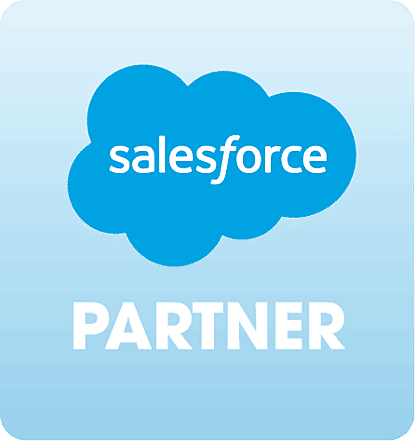Salesforce Sales Cloud: A Comprehensive Guide for Sales Excellence
Introduction
Salesforce Sales Cloud stands at the forefront of customer relationship management (CRM) technology, offering a robust platform tailored specifically for sales teams. This guide delves deep into the Salesforce-specific features, benefits, and best practices that set Sales Cloud apart in the CRM landscape.
Salesforce Sales Cloud: Core Components
1. Lead Management in Salesforce
Salesforce's lead management goes beyond basic tracking. It incorporates **Lead Scoring**, which automatically rates leads based on criteria you set. The **Lead Assignment Rules** feature ensures leads are distributed to the right sales reps instantly, while **Web-to-Lead forms** capture prospects directly from your website into Salesforce.
2. Salesforce Opportunity Management
Sales Cloud's opportunity management is built around the concept of "Stages" - customizable phases that reflect your unique sales process. Each stage can be assigned a probability percentage, feeding directly into sales forecasts. The **Opportunity Team** feature allows multiple team members to collaborate on high-value deals.
3. Account and Contact Management
Salesforce pioneered the 360-degree customer view. The platform's account hierarchies allow you to visualize complex B2B relationships. The **Account Team** feature enables cross-functional collaboration, while **Account Insights** powered by Einstein AI provides real-time news and updates about your accounts.
4. Salesforce Quotes and Products
Sales Cloud integrates seamlessly with your product catalog. The **CPQ (Configure, Price, Quote)** feature automates complex pricing scenarios, while the **Quotes** object allows you to generate professional quotes directly within Salesforce, tracking versions and approvals.
5. Salesforce Forecasting
Sales Cloud offers multiple forecasting types - including Opportunity, Overlay, and Product forecasts. The **Collaborative Forecasts** feature allows team input on projections, while **Customizable Forecast Categories** let you adapt forecasts to your business model.
6. Salesforce Campaigns
While often associated with Marketing Cloud, Sales Cloud includes robust campaign management. You can track ROI, manage campaign hierarchies, and automatically associate leads and opportunities to specific campaigns.
7. Salesforce Territory Management
Enterprise editions and above offer advanced territory management, allowing you to model complex sales territories based on any standard or custom field in Salesforce.
8. Lightning Sales Console
This Salesforce-specific interface is designed for high-velocity sales environments, offering a tabbed interface for quick navigation between records and split-view capabilities for multi-tasking.
Salesforce-Specific AI and Automation Features
1. Einstein Lead Scoring
This AI-powered feature automatically ranks leads based on their likelihood to convert, helping sales reps prioritize their efforts.
2. Einstein Opportunity Insights
Provides AI-driven recommendations on deal closing strategies and flags opportunities at risk.
3. Einstein Activity Capture
Automatically logs emails and calendar events from connected email services to Salesforce, ensuring comprehensive activity tracking.
4. Sales Cadences
Automate outreach sequences with preset steps and timing, ensuring consistent follow-up across your team.
5. Einstein Conversation Insights
Analyzes sales calls (when integrated with supported telephony systems) to provide insights on conversation topics, competitor mentions, and more.
Salesforce Sales Cloud Reporting and Analytics
1. Salesforce Report Types
Sales Cloud offers a variety of pre-built report types specific to sales processes, such as Opportunities with Products, Leads with Converted Lead Information, and Activities with Accounts.
2. Salesforce Dashboards
Create up to three columns of components in a single dashboard, with features like dynamic dashboards (which change based on the viewer) and dashboard filters for interactive analysis.
3. Einstein Analytics for Sales
This add-on provides advanced analytics capabilities, including predictive analytics and AI-driven recommendations specifically for sales data.
Salesforce-Specific Collaboration Tools
1. Chatter
Salesforce's built-in collaboration platform allows for real-time communication, file sharing, and the ability to follow specific records or topics.
2. Salesforce Anywhere (Quip)
This integrated collaboration solution combines documents, spreadsheets, and team chat directly within Salesforce records.
3. Salesforce Meetings
A video conferencing solution native to Salesforce, providing pre-meeting preparation, in-meeting note-taking, and post-meeting follow-up actions, all within the CRM.
Mobile Capabilities in Salesforce Sales Cloud
1. Salesforce Mobile App
Offers a fully functional mobile version of Sales Cloud, including offline access to records and the ability to customize the mobile experience without coding.
2. Salesforce Inbox
Integrates your email and calendar with Salesforce, allowing you to update CRM records directly from your mobile email app.
Salesforce Sales Cloud Customization
1. Lightning App Builder
Drag-and-drop interface for creating custom pages and apps within Salesforce without coding.
2. Process Builder and Flow
Visual tools for creating complex business processes and automated workflows specific to your sales operations.
3. Custom Objects and Fields
Extend Sales Cloud's data model to capture information unique to your business, with the ability to create relationships between custom and standard objects.
4. AppExchange
Salesforce's marketplace for pre-built applications and components, many specifically designed to enhance Sales Cloud functionality.
Implementing Salesforce Sales Cloud: Best Practices
1. Salesforce Data Loader
Use this tool for bulk data imports and exports when migrating to Sales Cloud or performing large-scale updates.
2. Salesforce Adoption Dashboards
Leverage these pre-built dashboards to monitor user adoption and identify areas for improvement.
3. Salesforce Trailhead
Utilize Salesforce's free online learning platform for user training and ongoing skill development.
4. Salesforce Sandbox
Always test new configurations, customizations, and integrations in a sandbox environment before deploying to production.
5. Salesforce Success Communities
Engage with other Salesforce users and experts to solve problems and share best practices.
Overcoming Salesforce-Specific Challenges
1. Salesforce Governance
Establish a Center of Excellence to manage your Salesforce instance, including release management, user access controls, and data quality initiatives.
2. Salesforce Lightning Migration
For organizations still using Salesforce Classic, plan a phased approach to migrating to the Lightning Experience, using the Lightning Experience Readiness Check to identify potential issues.
3. Salesforce Integration
Utilize Salesforce Connect for real-time integration with external data sources, and MuleSoft (a Salesforce company) for more complex integration scenarios.
Future Trends in Salesforce Sales Cloud
1. Expansion of Einstein AI capabilities across more Sales Cloud features.
2. Increased integration between Sales Cloud and Salesforce's Customer 360 platform.
3. Enhanced predictive analytics for sales forecasting and pipeline management.
4. Greater emphasis on mobile-first features and design.
5. Deeper integration with digital engagement tools like Salesforce Anywhere and Slack (following Salesforce's acquisition).
Conclusion
Salesforce Sales Cloud offers a powerful, highly customizable platform for sales teams looking to streamline their processes and boost productivity. By leveraging its unique features - from AI-powered insights to advanced territory management - organizations can gain a significant competitive advantage. As Salesforce continues to innovate, staying informed about new capabilities and best practices will be crucial for maximizing the value of your Sales Cloud investment.
Successful implementation and optimization of Salesforce Sales Cloud often requires expertise. Consider partnering with a certified Salesforce consultant like FusionHawk to fully harness the power of this robust sales platform.









